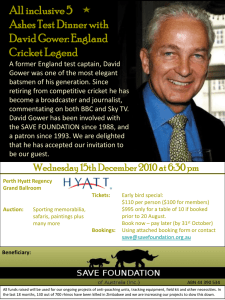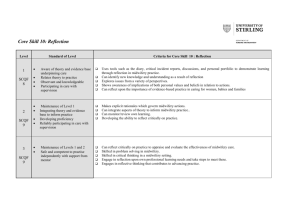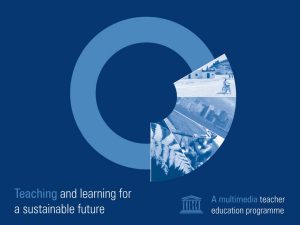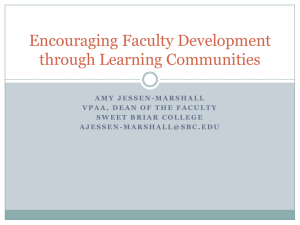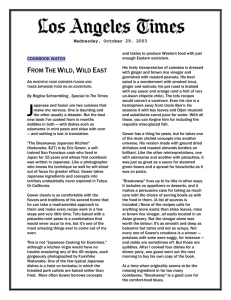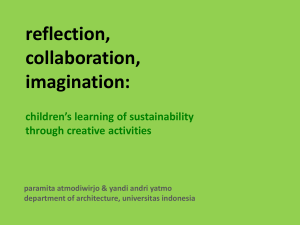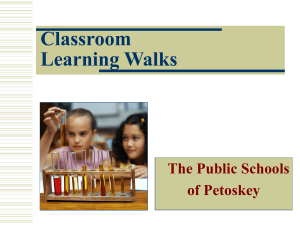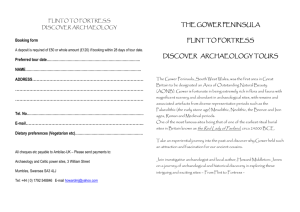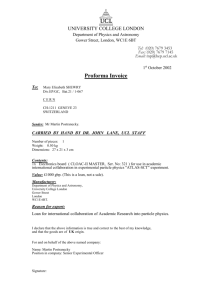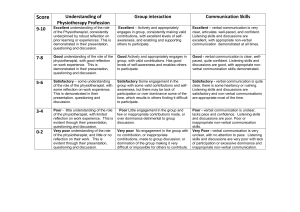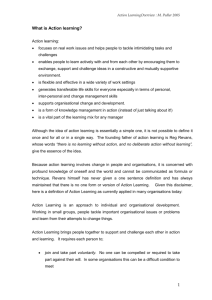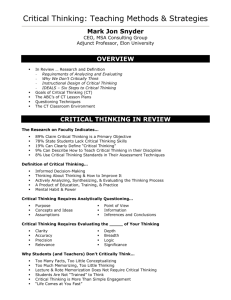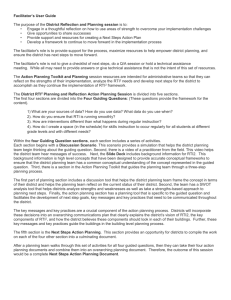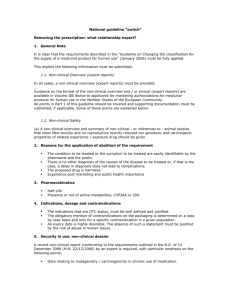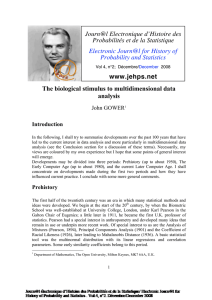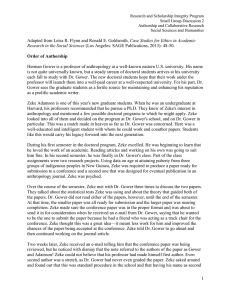Radica Hardyl and Francesca Entwistle LTI conference 1
advertisement
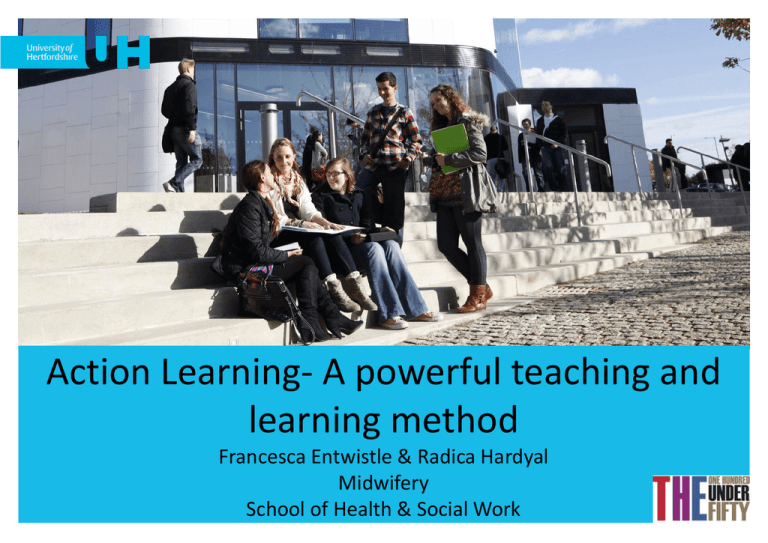
Action Learning- A powerful teaching and learning method Francesca Entwistle & Radica Hardyal Midwifery School of Health & Social Work Aim of this workshop • • • • • To introduce you to Action Learning To discuss how Action Learning works To ‘have a go’ in small groups To gain feedback from the group To equip you with a ‘package’ to take away and develop within your own discipline. Definition “Action Learning is a pragmatic and moral philosophy based on a deeply humanistic view of human potential that commits us, via experiential learning, to address the intractable problems of organisations and societies.” Pedler (2012) Action Learning enables deeper learning, exploring ‘common’ practices that can be ‘unpicked’ and ‘rebuilt’ in a meaningful way Reducing the risk of a ‘Never Event’ focus on Patient Safety, reducing cost to the and documentation our to journey exploring mother and family and also the Trust Swab Checks through ‘Action Learning’ Duplication, Confusion with signing, increased workload Look at the evidence & empower staff The sticker for transfer to the ward could have an area for ensuring swabs are checked Audit, outcomes, CQC ACCOUNTABILITY Another idea could be to use the yellow notes for normal deliveries and any cases in theatre use the ‘theatre swab’ checklist so that duplication in two places doesn’t occur From Clinician to Specialised Midwives Non clinical work Midwifery is an ever changing environment However the unexpected can happen and this can affect clinical practice ‘Action Learning Set’ Increased knowledge and strength aids return to clinical duties A non-clinical role should be viewed as a privileged position, giving an increased learning of organisational processes. Privileged position Appropriate orientation into the non-clinical role would enable staff to develop themselves and assist in benefiting service needs. Thinking outside the box Awareness of the organisation Checking Antenatal Notes in relation to Payment by Results (PBR) Essential skills Powerful Listening Powerful Questioning ‘the quality of a person’s attention determines the quality of other people’s thinking’ Kline, 2013, p.17. Principles of Action Learning • An approach for problem solving • Turns reflection into action • Works well for experienced professionals Reflection Learning Action(doing) How does it work • • • • An action learning group/set facilitator The set adopts ground rules Each person brings a ‘focussed’ based problem or issue Learning occurs through listening, questioning and actions • Learning comes from inside and outside of action learning group Role of the Set Facilitator • Helps group to focus and to use Action Learning principles • Helps members to consciously be aware of what they do, say, think, feel • Draws attention to learning opportunities within and outside the set • To be a role model to help learning and working in the set What students say Action Learning has given me the skills to assess a problem and, through research, discussion and reflection, find a solution. It has helped me to grow as an individual and develop my confidence in my new senior post. What became evident is, as individuals, we are very hasty to make assumptions about others, merely based on how we think we would feel in that situation. Action learning requires a problem to be identified and examined in detail, to reach a plan of action through open, unpersuasive questioning. Lets try it - format Think about a ‘problem’ to bring to the group • Volunteer problem holder has 10 mins. airspace to present their problem • Members listen and formulate one question to ask (see handout) • Facilitator clarifies the issue • Observers feedback and ask further questions e.g what would happen if… • Problem holder decides on actions Feedback from the action learning groups Capturing your reflection Further reading: • • • • • • • Cardiff, S (2012) Critical and Creative Reflective Inquiry: surfacing narratives to enable learning and inform action. Educational Action Research: an international Journall. Routledge. Vol.20, No. 4, Dec. Fullan, M. (2011) Change Leader: Learning to do what matters most. London Jassey-Bass. Kline, N (2013) Time to Think: Listening to ignite the human mind. Cassell Illustrated. UK. Lewis, S. Passmore, J & Cantori, S (2011) Appreciative Inquiry for Change Management: Using AI for Change Management: using AI to facilitate organisational development. London: Kogan Press. Revans R, (2011) ABC of Action Learning. Gower Publishing Ltd. Pedler M (2012). Action Learning in Practice. 3rd edn. Gower Publishing, Brookfield, VT Weinstein K. (2002) Action Learning. A Practical Guide. (2nd ed) Oxford. Gower.
